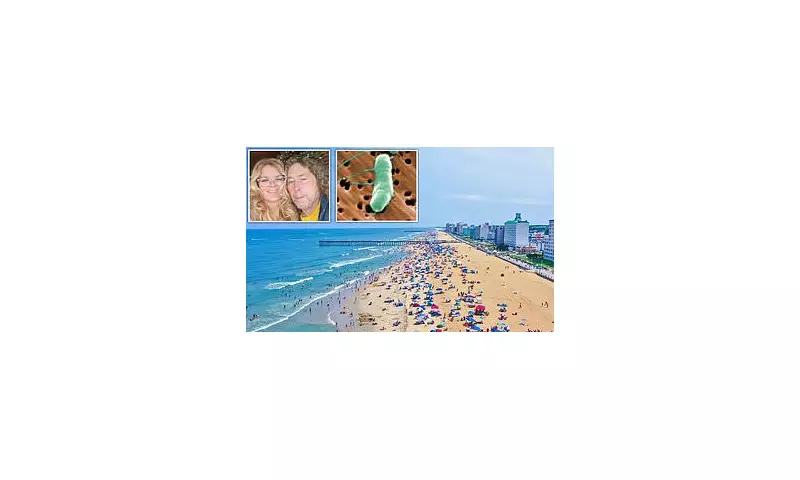
A family holiday in Virginia Beach turned into a nightmare for one local family, culminating in a tragic loss that has prompted urgent health warnings. A husband and father died just days after contracting a vicious bacterial infection from seawater, a fate his grieving widow is now sharing to prevent similar tragedies.
A Day at the Beach Turns Deadly
The outing seemed like any other summer day by the coast. However, an unseen danger lurked in the water. The man, whose identity is being respected, entered the sea with an open cut. This minor wound provided a direct entry point for Vibrio vulnificus, a potentially deadly bacterium often found in warm, brackish coastal waters.
The Rapid and Terrifying Decline
The infection took hold with alarming speed. What began as typical symptoms rapidly escalated into a life-threatening condition.
- Initial Symptoms: The man initially experienced stomach cramps, fever, and chills.
- Rapid Deterioration: His condition worsened dramatically within hours, with the infection site becoming swollen, red, and intensely painful.
- Septic Shock: The bacteria entered his bloodstream, leading to septic shock—a medical emergency where organs begin to fail.
Despite being rushed to hospital and receiving intensive medical care, doctors were unable to save him. He passed away shortly after admission, leaving his family devastated.
A Grieving Widow's Urgent Warning
His wife, now navigating immense grief, has bravely spoken out to raise public awareness. Her message is stark and simple: "If you have any kind of cut, do not go in the water." She hopes that by sharing her husband's story, she can prevent other families from enduring similar heartbreak.
Understanding the Vibrio Vulnificus Threat
Vibrio vulnificus is sometimes inaccurately called "flesh-eating bacteria" because it can cause necrotizing fasciitis, a severe infection that destroys soft tissue. While rare, infections are particularly dangerous for individuals with compromised immune systems or chronic liver disease.
Health officials emphasise that the bacteria do not pose a threat to healthy individuals with intact skin. The primary risk comes from exposing open wounds to seawater, especially during the warmer months when bacterial concentrations are higher.
Official Health Guidance
Local health departments have reiterated their safety advice for swimmers and beachgoers:
- Avoid swimming in salt or brackish water if you have fresh cuts or scrapes.
- If cut while in the water, leave immediately and clean the wound thoroughly with soap and clean water.
- Monitor any wound for signs of infection, such as redness, swelling, or fever, and seek medical attention promptly if these appear.
This tragic incident serves as a sobering reminder of the hidden risks that can exist in even the most familiar and seemingly safe environments.





